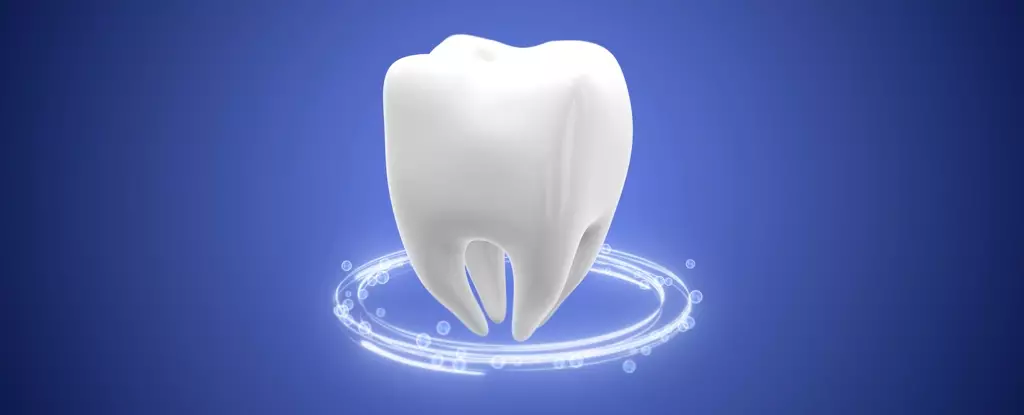The notion of laboratory-crafted teeth may seem like a plot straight out of a dystopian horror film, yet it presents an exciting frontier for modern dentistry. Recent research undertaken by teams from King’s College London and Imperial College London unveils a promising material that could redefine how we approach tooth repair and regeneration. This endeavor, rather than igniting fear, ignites hope for a future brimming with medical breakthroughs that could drastically improve oral health care. It is a sign of progress that is necessary in times when traditional methods, such as fillings and implants, often leave much to be desired.
Bridging Nature and Science
What makes this research remarkable is the development of a hydrogel that enhances cellular communication, allowing for a more harmonious environment in which oral cells can collaborate effectively. This hydrogel acts as a scaffold that mimics the natural conditions required for tooth growth, using dental cells sourced from mice embryos. Regenerative Dentistry PhD candidate Xuechen Zhang articulates an astonishing vision: teeth that not only grow but integrate seamlessly into our jaws, potentially offering a remedy that no longer necessitates materials foreign to the human body. The ability to regenerate teeth is a thrilling concept that highlights the incredible intersection of biology and technology.
A Shift Towards Self-Healing
Whenever we cut our skin, a natural healing process begins almost instantaneously. What if we could replicate this phenomenon in our mouths? Imagine a scenario where tooth injuries could heal similarly, defying the traditional reliance on artificial materials. The hydrogel developed by the researchers promises to do just that by releasing crucial signals gradually, echoing the body’s innate processes. Unlike prior attempts that overwhelmed the body with signals, this innovation paves the way for a more organic approach to tooth healing, reinforcing the necessity of research that aligns with the body’s natural rhythms and responses.
Challenges and Opportunities Ahead
Of course, while the science behind this innovation is compelling, it is far from flawless. The next entrepreneurial challenge lies in transitioning this controlled laboratory environment to the complex bio-environment of the human mouth. Strategies such as the transplantation of cells or implanting fully-grown lab-engineered teeth are currently under exploration. The task at hand remains formidable, but history has shown us that human ingenuity is limitless when it comes to overcoming obstacles. Our tenacity to unlock the mysteries of the human body fuels the hope that one day, we may possess the capabilities to promote our own tooth regrowth.
Beyond Cosmetic Benefits
However, this research is not merely about achieving aesthetically pleasing smiles; its implications extend into the realm of physical health. Research indicates that oral health is intricately linked to our overall physical well-being. For those grappling with anodontia—an affliction hindering normal tooth development—this research presents avenues for potentially life-changing treatments. Regen dentistry expert Ana Angelova Volponi notes that as we refine these innovations, a revolution in dental care looms on the horizon, emphasizing the importance of sustainable and effective solutions that prioritize human biology over artificial fixes.
The Ethical Landscape
As with any groundbreaking development, ethical considerations loom large. The potential to engineer human tissues for regenerative purposes raises questions about bioethics, the sanctity of natural processes, and what it might mean to ‘play God’ with human biology. These concerns must be addressed thoughtfully, ensuring that advancements in science do not outpace our moral obligations towards the patients and communities we aim to serve. While the excitement surrounding lab-grown teeth is palpable, it is essential that this enthusiasm is tempered with conversations about the responsibility that accompanies such powerful capabilities.
The ambitious pursuit of dental regeneration could mark a significant turning point in how we perceive tooth care and, more broadly, human health. As researchers continue their exploration, we stand on the cusp of new beginnings, ready to embrace solutions that not only restore but enhance the fundamental aspects of human biology. The excitement around these advancements signals not only the fact that we can do more but that we must, for the health and well-being of future generations.


Leave a Reply